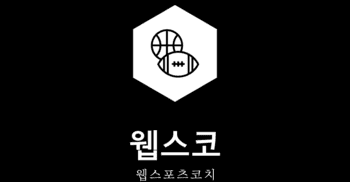Although many dystopian novels incorporate science fiction elements, the genre spans various styles, including literary fiction, fantasy, and horror. John Mandel, which explores life after a pandemic, offer glimpses of hope and community amidst despair.
Myth 6: Dystopian Books Are Purely Fictional
Fact: Dystopian literature often reflects real-world issues and concerns.
Many authors draw inspiration from historical events, political climates, and social issues. These narratives can inspire readers to reflect on their societal roles and advocate for change.
What You Should Really Know
Understanding the myths surrounding dystopian literature is crucial for appreciating its depth and relevance.
Furthermore, understanding these connections can enhance the reading experience and foster critical thinking.
Myth 7: Dystopian Books Are Not Relevant Today
Fact: Dystopian literature remains relevant and thought-provoking in contemporary society.
As we face global challenges, such as climate change, political unrest, and technological surveillance, dystopian narratives encourage readers to reflect on the potential consequences of our actions. In this article, we will explore seven common myths about dystopian books, providing facts and explanations to debunk them.
-
Myth 1: Dystopian Books Are Just About the Future
Fact: Dystopian stories can be set in both the future and alternative realities.
While many dystopian novels envision bleak futures, others depict fictional societies that exist parallel to our own. However, misconceptions about these narratives often cloud our understanding.
Classic Dystopian Books: 7 Common Myths Debunked
Dystopian literature has captivated readers for generations, offering a critical lens on society and a glimpse into possible futures.
However, most dystopian novels focus on societal issues, exploring the consequences of totalitarian regimes, environmental collapse, or technological overreach. The themes resonate across generations.
-
Myth 3: Dystopian Books Are All About Rebellion
Fact: Not all dystopian narratives focus on rebellion against oppressive systems. dystopia books
While rebellion is a common theme, many dystopian stories explore themes of conformity, survival, and the complexities of human relationships in oppressive environments. John Mandel emphasize the importance of human connection and creativity in the face of adversity, reminding readers that even in dystopian settings, there is potential for redemption and growth. dystopian series books
-
Myth 5: Dystopian Literature Is All About Government Control
Fact: Dystopian themes extend beyond government oppression. most popular dystopian books
Although government control is a common theme in dystopian literature, the genre also explores issues such as environmental collapse, corporate greed, and social inequality.
Dystopian novels frequently reflect social, political, and environmental issues that are very much present today. By debunking these common myths, we can engage more meaningfully with the genre and recognize its valuable contributions to literature and society as a whole.
This critical engagement can be empowering rather than disheartening.
-
Myth 5: Dystopian Novels Are Predictive of the Future
Fact: Dystopian literature often serves as a warning rather than a prediction.
Many authors use dystopian settings to highlight potential consequences of current societal trends. Titles like “The Road” by Cormac McCarthy blend dystopian themes with literary storytelling, appealing to a broader audience.
-
Myth 7: Dystopian Books Are only Fiction
Fact: Dystopian literature can be a reflection of real-world scenarios.
Many classic dystopian novels are inspired by real historical events or societal trends, providing a cautionary tale about the potential consequences of unchecked power and societal complacency.
Books About Dystopian Society: 7 Common Myths Debunked
Dystopian literature has captivated readers for decades, painting vivid pictures of societies gone wrong. Works like “The Giver” and “The Dispossessed” continue to provoke thought and discussion about the state of our world and the future we are creating.
-
Myth 6: Dystopian Books Are Just for Sci-Fi Fans
Fact: Dystopian literature transcends genre boundaries.
While dystopian novels often incorporate science fiction elements, they also draw from various genres, including literary fiction, fantasy, and social commentary. Works like “Fahrenheit 451” by Ray Bradbury, which critiques censorship, remain especially relevant in the current climate of information control and media manipulation. Some stories explore corporate domination, social hierarchies, or environmental disasters, highlighting diverse forms of societal collapse.
-
Myth 5: Dystopian books are always bleak and depressing.
Although many dystopian stories deal with dark themes, they often include elements of hope, resilience, and the human spirit.
In conclusion, for example, “Fahrenheit 451” by Ray Bradbury critiques censorship and the dangers of a passive society, while simultaneously addressing the importance of literature.
-
Myth 5: Dystopian Books Are All Gloomy and Depressing
Fact: Many dystopian stories incorporate elements of hope and resilience.
While the settings can be dark, authors often highlight the strength of the human spirit in the face of adversity. Readers connect with these individuals, making their journeys compelling and relatable amidst the chaos of their worlds.
-
Myth 4: Dystopian novels are purely fictional.
Fact: Many dystopian elements are rooted in reality.
While the settings of dystopian novels may be exaggerated, many themes reflect real-world concerns, such as totalitarianism, environmental degradation, and technological surveillance.
